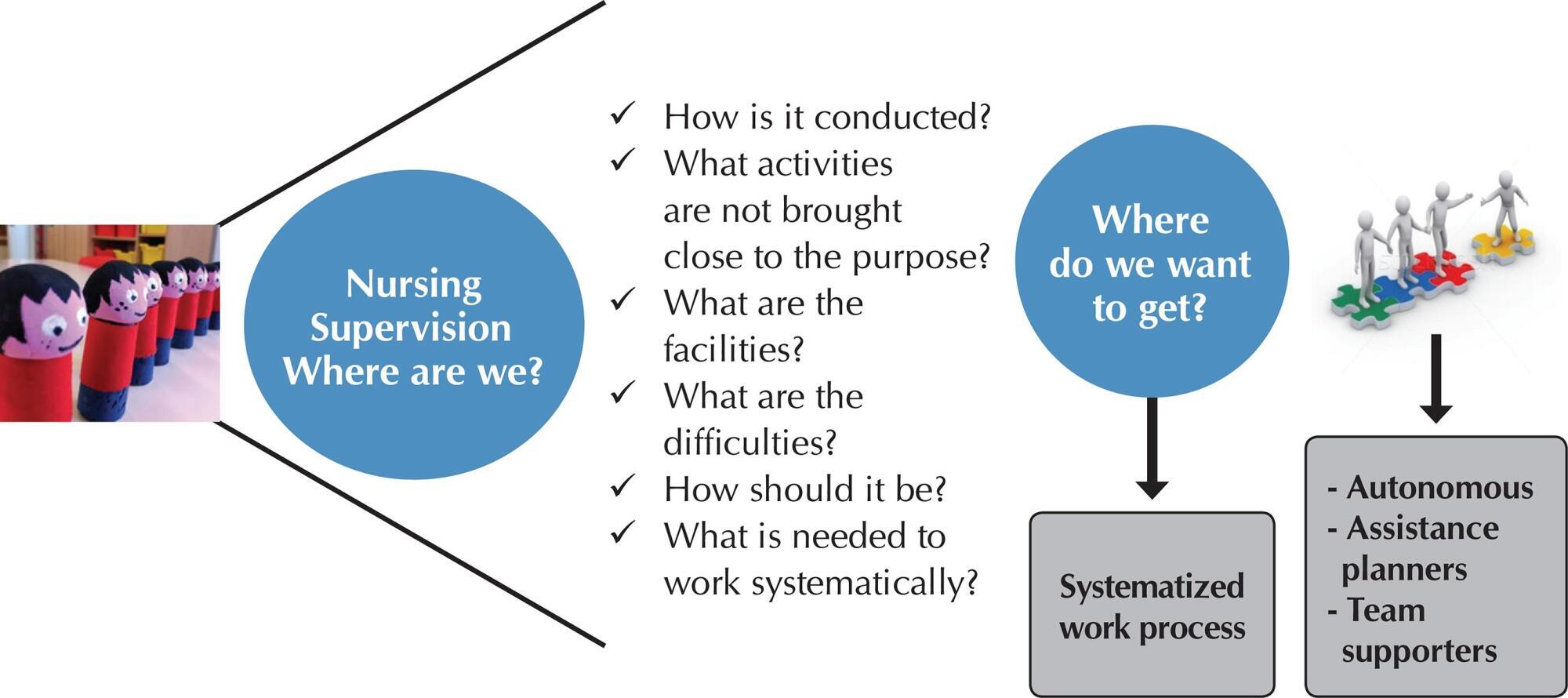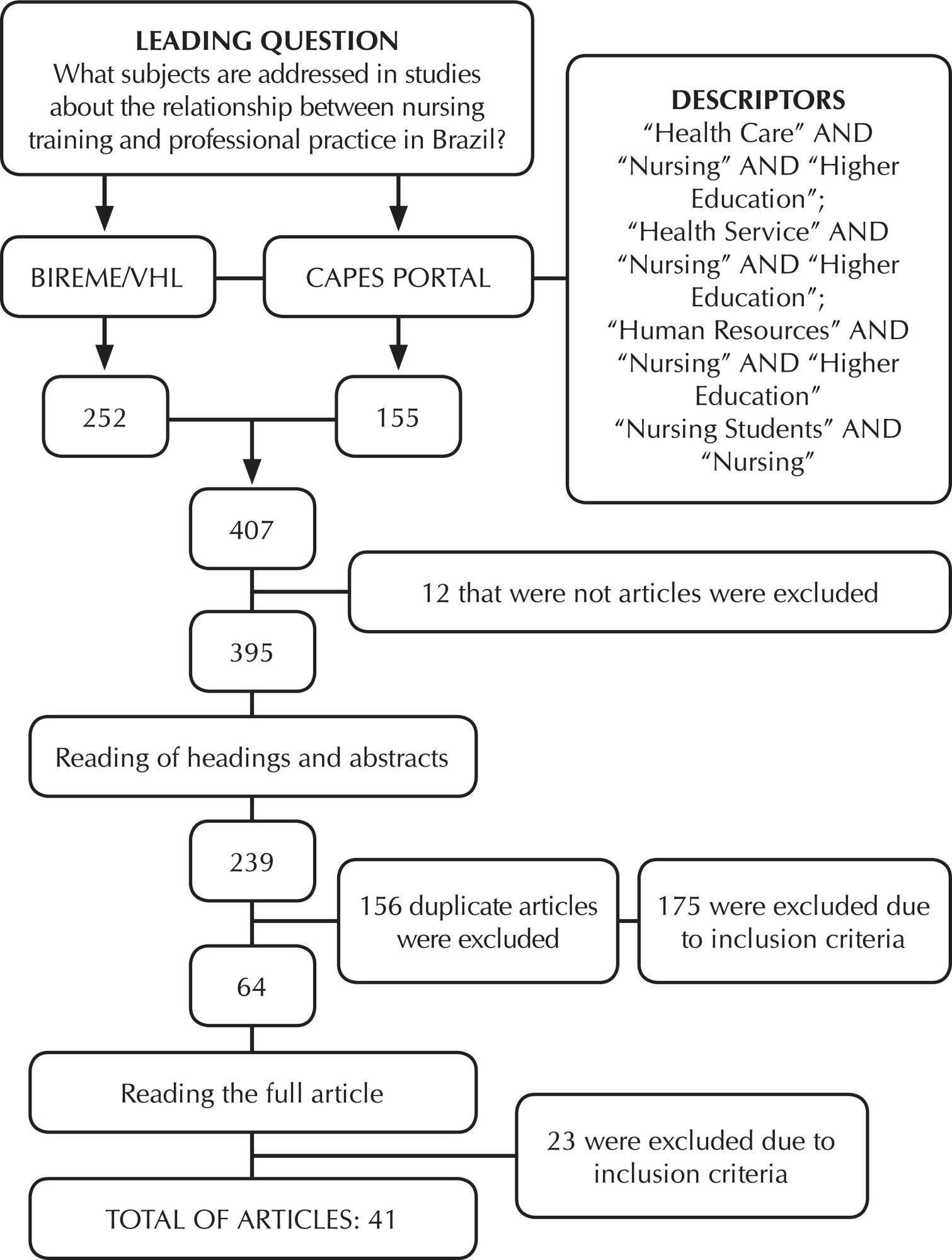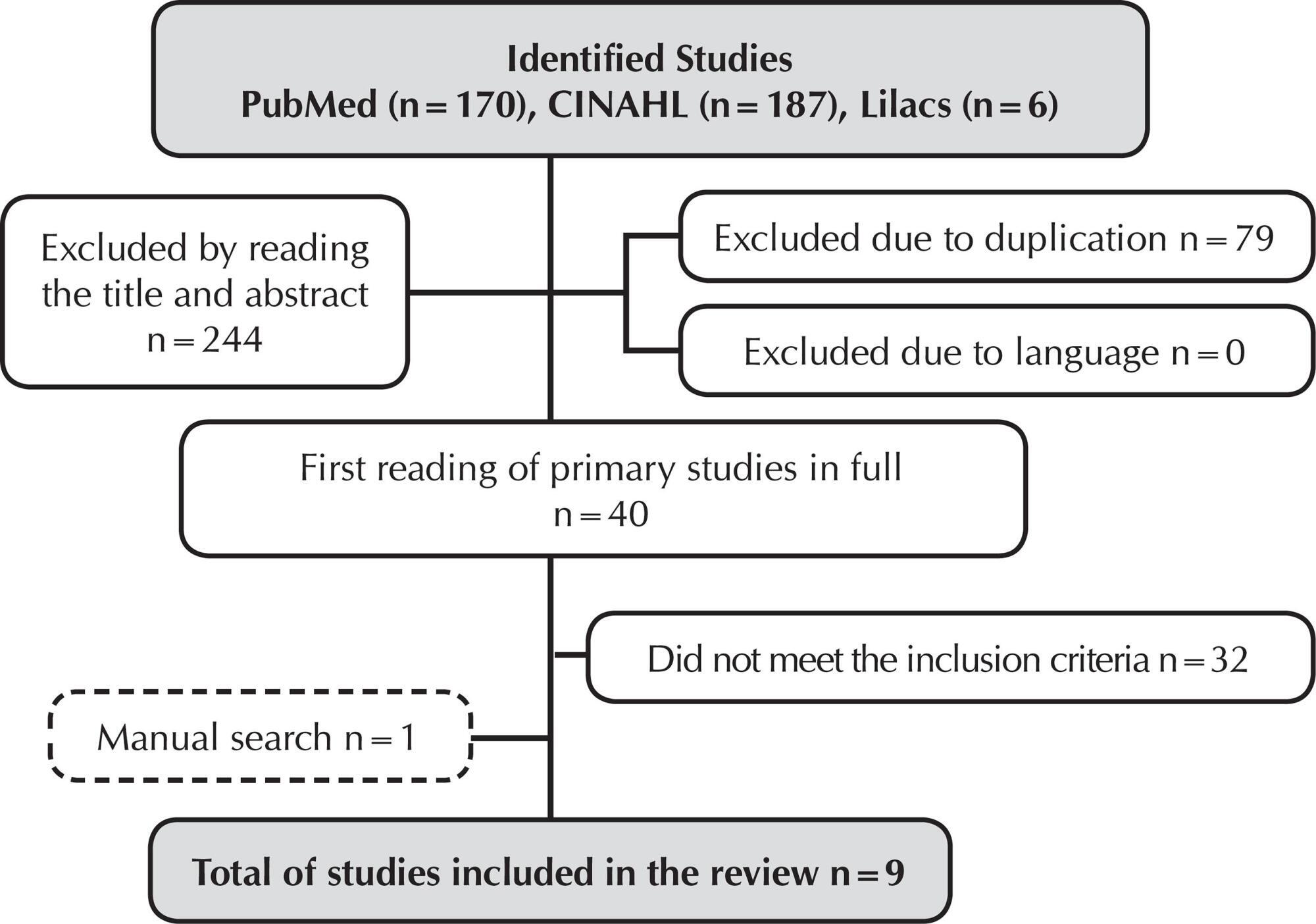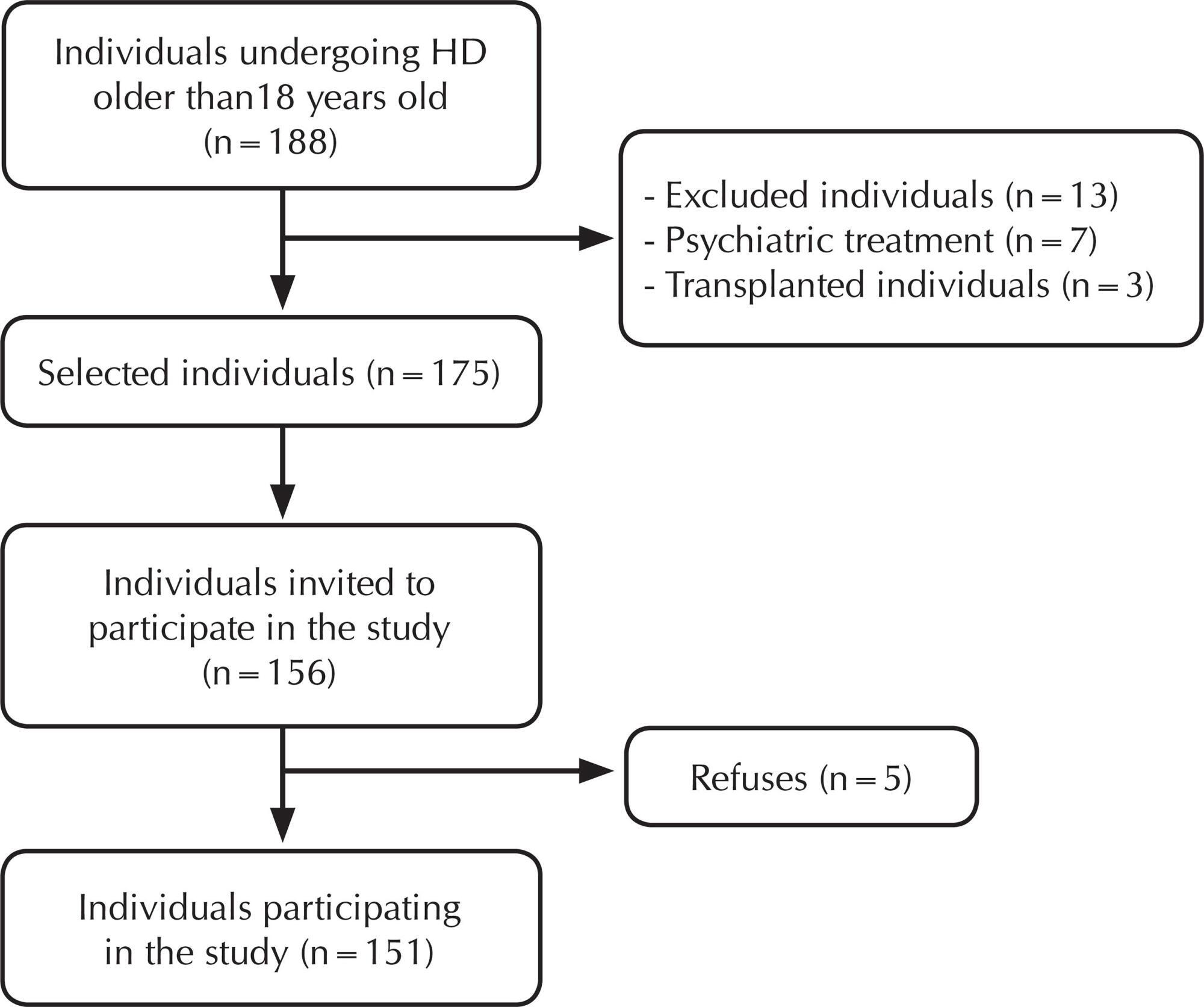-
08-30-2024
Fatores determinantes para à hesitação vacinal contra a COVID-19 em brasileiros: estudo utilizando modelagem de equações estruturais
Revista Brasileira de Enfermagem. 2024;77:e20240112
Abstract
Fatores determinantes para à hesitação vacinal contra a COVID-19 em brasileiros: estudo utilizando modelagem de equações estruturais
Revista Brasileira de Enfermagem. 2024;77:e20240112
DOI 10.1590/0034-7167-2024-0112
Views0See moreRESUMEN
Objetivos:
investigar los factores que influyen en la vacilación ante la vacuna contra la COVID-19 entre los brasileños.
Métodos:
esta investigación empleó un enfoque observacional y analítico, utilizando una encuesta en línea. La recolección de datos se llevó a cabo en 2020 y el análisis de los datos se realizó utilizando el modelado de ecuaciones estructurales.
Resultados:
la prevalencia de la vacilación ante la vacuna fue del 27,5% (1182 individuos). Existe una correlación negativa entre la creencia en teorías de conspiración y la influencia social. Entre las diversas creencias asociadas con las intenciones de vacunación, solo las creencias en conspiraciones mostraron un valor predictivo significativo. Así, los resultados sugieren que las creencias personales impactan significativamente la vacilación ante la vacunación y también indican que la confianza en los órganos gubernamentales está inversamente relacionada con la vacilación.
Conclusiones:
la vacilación ante la vacuna emerge como un fenómeno multifacético influenciado por una amplia gama de factores, incluyendo las creencias personales, la confianza en los órganos gubernamentales y los sistemas de salud.
-
ORIGINAL ARTICLE08-30-2024
Determining factors for COVID-19 vaccine hesitancy among Brazilians: a study using structural equation modeling
Revista Brasileira de Enfermagem. 2024;77:e20240112
Abstract
ORIGINAL ARTICLEDetermining factors for COVID-19 vaccine hesitancy among Brazilians: a study using structural equation modeling
Revista Brasileira de Enfermagem. 2024;77:e20240112
DOI 10.1590/0034-7167-2024-0112
Views0See moreABSTRACT
Objectives:
to investigate the factors influencing vaccine hesitancy against COVID-19 among Brazilians.
Methods:
this research employed an observational and analytical approach, utilizing a web-based survey. Data collection took place in 2020, and data analysis was conducted using structural equation modeling.
Results:
the prevalence of vaccine hesitancy was found to be 27.5% (1182 individuals). There is a negative correlation between belief in conspiracy theories and social influence. Among the various beliefs associated with vaccination intentions, only conspiracy beliefs exhibited significant predictive value. Thus, the findings suggest that personal beliefs significantly impact hesitancy towards vaccination, and also indicate that trust in governmental bodies is inversely related to hesitancy.
Conclusions:
vaccine hesitancy emerges as a multifaceted phenomenon influenced by a complex array of factors, including personal beliefs, trust in governmental bodies, and healthcare systems.

-
ORIGINAL ARTICLE08-30-2024
Factors associated with university students’ knowledge about HIV and pre- and post-exposure prophylaxis
Revista Brasileira de Enfermagem. 2024;77:e20240092
Abstract
ORIGINAL ARTICLEFactors associated with university students’ knowledge about HIV and pre- and post-exposure prophylaxis
Revista Brasileira de Enfermagem. 2024;77:e20240092
DOI 10.1590/0034-7167-2024-0092
Views0See moreABSTRACT
Objectives:
to analyze the factors associated with university students’ knowledge about HIV and pre- and post-exposure prophylaxis.
Methods:
a cross-sectional study was conducted with 503 university students from a southern state in Brazil; data were collected using a characterization tool and a questionnaire containing 16 statements about the topic; descriptive measures and Poisson regression models with robust variance were used for analysis.
Results:
the prevalence of adequate knowledge (i.e., scoring more than 12 correct answers) was 27.83%; students older than 24 years, enrolled in health-related courses, who had not engaged in sexual relations in the last quarter, with a history of rapid HIV testing, and who knew or had heard about the prophylaxes showed a higher likelihood of scoring more than 12 correct answers.
Conclusions:
generally, the knowledge of young people about HIV and its prophylaxes was found to be inadequate and influenced by sociodemographic, educational, and behavioral factors.

-
ORIGINAL ARTICLE08-30-2024
Accessibility to prenatal care at the Street Outreach Office: nurse perceptions in northern Brazil
Revista Brasileira de Enfermagem. 2024;77:e20240090
Abstract
ORIGINAL ARTICLEAccessibility to prenatal care at the Street Outreach Office: nurse perceptions in northern Brazil
Revista Brasileira de Enfermagem. 2024;77:e20240090
DOI 10.1590/0034-7167-2024-0090
Views0See moreABSTRACT
Objectives:
to understand nurse perspectives regarding homeless pregnant women’s accessibility to prenatal care.
Methods:
a qualitative study, with analysis based on the concept of accessibility. Semi-structured interviews were carried out with 11 nurses who work at the Street Outreach Office in northern Brazil.
Results:
nurses are faced with geographic barriers and dangerous situations in border regions, recognizing that there is a context of physical, sexual and psychological violence that involves homeless pregnant women who seek care at the Street Outreach Office. Street Outreach Office nurses’ work occurs in conjunction with other services in the Health Care Network. The implementation of educational measures is a powerful strategy, as is establishing links with women.
Final Considerations:
the Street Outreach Office’s work provides meetings with pregnant women on site in the territory, which can provide geographic and socio-organizational accessibility to prenatal care.
-
ORIGINAL ARTICLE08-30-2024
Risk of smoking cessation treatment dropout: a cohort to help (re)think care
Revista Brasileira de Enfermagem. 2024;77:e20230537
Abstract
ORIGINAL ARTICLERisk of smoking cessation treatment dropout: a cohort to help (re)think care
Revista Brasileira de Enfermagem. 2024;77:e20230537
DOI 10.1590/0034-7167-2023-0537
Views0See moreABSTRACT
Objectives:
to evaluate the relative risk of smoking cessation treatment dropout during its intensive phase.
Methods:
a retrospective and quantitative cohort study was developed from the electronic medical records of individuals who started smoking cessation treatment between 2015 and 2019 at a specialty clinic in a city in the interior of São Paulo, Brazil. The relative risk of dropping out of treatment was calculated using the Poisson regression model.
Results:
it was observed that out of the 396 (100.0%) individuals who started the treatment, 109 (27.5%) abandoned it before the end of the intensive phase. For each one-year increase in age, the risk of dropping out of smoking cessation treatment decreased by an average of 2%.
Conclusions:
the risk of dropping out of smoking cessation treatment is higher among younger individuals. It is necessary to rethink the care offered to younger adults to promote the continuity of treatment.

-
REVIEW08-30-2024
Impact of financial toxicity on adults with cancer during the COVID-19 pandemic: an integrative review
Revista Brasileira de Enfermagem. 2024;77:e20240078
Abstract
REVIEWImpact of financial toxicity on adults with cancer during the COVID-19 pandemic: an integrative review
Revista Brasileira de Enfermagem. 2024;77:e20240078
DOI 10.1590/0034-7167-2024-0078
Views0See moreABSTRACT
Objectives:
to identify the repercussions of financial toxicity on the lives of adult cancer patients during the COVID-19 pandemic.
Methods:
an integrative review was conducted using the PubMed, Web of Science, Scopus, and Embase databases, as well as the Virtual Health Library portal, in March 2023.
Results:
out of 62 studies found, 13 were included for analysis. The primary repercussions of financial toxicity included difficulties in covering basic expenses such as food, housing, medication, transportation, and internet access; increased anxiety and concerns related to health and financial situations; reduction or absence of income; challenges in obtaining treatment or accessing healthcare services; rising expenses; and telemedicine as a less burdensome alternative.
Conclusions:
the pandemic has exacerbated financial toxicity; therefore, healthcare teams must recognize it as an adverse event of oncological treatment and understand its potential to affect various aspects of patients’ lives.

-
ORIGINAL ARTICLE08-30-2024
Negative affectivity in university students and its relationship with academic performance and professional outlook after COVID-19
Revista Brasileira de Enfermagem. 2024;77:e20240040
Abstract
ORIGINAL ARTICLENegative affectivity in university students and its relationship with academic performance and professional outlook after COVID-19
Revista Brasileira de Enfermagem. 2024;77:e20240040
DOI 10.1590/0034-7167-2024-0040
Views0See moreABSTRACT
Objectives:
to evaluate the prevalence of negative affectivity in university students in the post-COVID-19 pandemic context and its relationship with academic performance and professional outlook.
Methods:
a cross-sectional study was conducted with undergraduate students from a public university in Minas Gerais between September 2022 and September 2023. Data were collected using a sociodemographic and psychosocial characterization questionnaire and the Depression, Anxiety, and Stress Scale 21. The relationships between negative affectivity, academic performance, and professional outlook were verified using the Kruskal-Wallis test, with a significance level of 5%.
Results:
a total of 585 students participated in the study. A high prevalence of depression, anxiety, and stress was found among university students in the post-COVID-19 context, with a notable severity of anxiety. A negative association was detected between the investigated negative affectivity, academic performance, and professional outlook.
Conclusions:
the results indicate an emotional vulnerability in university students, with a relationship between negative affectivity and a decline in academic performance and professional outlook.
-
REVIEW08-30-2024
Educational actions conducted during the pandemic with primary health care professionals: a scoping review
Revista Brasileira de Enfermagem. 2024;77:e20230352
Abstract
REVIEWEducational actions conducted during the pandemic with primary health care professionals: a scoping review
Revista Brasileira de Enfermagem. 2024;77:e20230352
DOI 10.1590/0034-7167-2023-0352
Views0See moreABSTRACT
Objectives:
to map the educational actions conducted with primary health care professionals during the COVID-19 pandemic.
Methods:
a scoping review conducted in August 2023, which covered databases such as CINAHL, Medline, LILACS, IBECS, BDENF, and Web of Science. In total, 32 publications were analyzed through content analysis.
Results:
the primary beneficiaries of the educational actions included 69% physicians, 56% nurses, 25% pharmacists, 13% social workers and dentists, 9% psychologists, community health agents, and laboratory professionals, and 6% nursing technicians, nutritionists, and physical educators. The predominant educational interventions were training sessions (mentioned in 19 publications), followed by Continuing Health Education (10 publications) and Continuing Education (three publications).
Final Considerations:
the educational interventions demonstrated positive impacts on professional practice, particularly the Continuing Health Education actions, which were notable for stimulating critical problem-solving among professionals.

-
REFLECTION01-01-2018
Advanced practices for care management: reflections on the Brazilian Nursing
Revista Brasileira de Enfermagem. 2018;71(4):2060-2065
Abstract
REFLECTIONAdvanced practices for care management: reflections on the Brazilian Nursing
Revista Brasileira de Enfermagem. 2018;71(4):2060-2065
DOI 10.1590/0034-7167-2017-0115
Views0See moreABSTRACT
Objective:
to explain about the Advanced Nursing Practice and to discuss the possibilities of the Advanced Practice for the management of nursing care in Brazil.
Method:
this is a theoretical-reflexive trial, based on the international literature on advanced practices in nursing and analysis relevant to the profession and to the Brazilian context.
Results:
the object of the study was described in the following driving axes: Advanced Practice Nurse: international examples and Brazilian reality; Reflections on the care management by the Advanced Practice Nurse in Brazil. Autonomy, qualified training, leadership and performance based on scientific evidences as the foundation of the best care management by the Advanced Nursing Practice, stand out.
Final considerations:
while early and challenging, the work of Brazilian nursing towards advanced professional practice seems to be interesting, since the possibilities of managing the care of this modality of nurses’ performance are evident.
-
REFLECTION01-01-2018
The Sociology of Pierre Bourdieu: theoretical potential for the subfield of nursing
Revista Brasileira de Enfermagem. 2018;71(4):2055-2059
Abstract
REFLECTIONThe Sociology of Pierre Bourdieu: theoretical potential for the subfield of nursing
Revista Brasileira de Enfermagem. 2018;71(4):2055-2059
DOI 10.1590/0034-7167-2016-0505
Views0See moreABSTRACT
Objective:
to approach the basic conceptions of Pierre Bourdieu’s sociology and its articulation with the subfield of nursing by focusing on managerial aspects.
Method:
reflections are based on the concepts of field, habitus, capital and symbolic power applied to the subfield of nursing by favoring the understanding of organizational dynamics and its agents.
Result:
health institutions are living structures in the adverse social world where nursing agents’ interests express their way of thinking and acting according to the place they occupy in the organization. These spaces of fight and symbolic violence tend to inculcate ideologies that meet these agents’ interests.
Final Considerations:
The proposition theory is fruitful to reflect the practice of management by unveiling the relationships and role that organizations establish about their agents. She warns about the possibility of seeing changes in the subfield of nursing.
-
EXPERIENCE REPORT01-01-2018
Workshops as a democratic proposal in order to change the supervision work in nursing
Revista Brasileira de Enfermagem. 2018;71(4):2050-2054
Abstract
EXPERIENCE REPORTWorkshops as a democratic proposal in order to change the supervision work in nursing
Revista Brasileira de Enfermagem. 2018;71(4):2050-2054
DOI 10.1590/0034-7167-2017-0286
Views0See moreABSTRACT
Objective:
to report the experience of developing workshops as an intervention strategy in an action research, aiming to review the work of supervision in hospital nursing.
Method:
to report of the experience of planning, developing and evaluating workshops with a psychosocial approach. Three workshops were held, in a reserved place, with the participation of 21 supervisors of a public university hospital. Each workshop was organized with heating, day work, closure with syntheses and consensus.
Results:
the work provided the exchange of experiences, reflections and proposals for difficulties identified in the work process that distract supervisors from the management of assistance such as communication failure, reworking and lack of definition of assignments in the team.
Conclusion:
the dynamics of the workshops favored supervisors to propose solutions to the difficulties of their practice in a more democratic and participative way, through dialogical interactions, sharing of the feelings pertinent to the work context and establishing consensus for the completion of the task.

-
REVIEW01-01-2018
Nursing training and professional practice: an integrative review of literature
Revista Brasileira de Enfermagem. 2018;71(4):2039-2049
Abstract
REVIEWNursing training and professional practice: an integrative review of literature
Revista Brasileira de Enfermagem. 2018;71(4):2039-2049
DOI 10.1590/0034-7167-2016-0504
Views0See moreABSTRACT
Objective:
to identify themes addressed in studies on the repercussions of nursing training in professional practice in Brazil.
Method:
this is a qualitative research, following the assumptions of Ganong’s Integrative Literature Review (1987). The keywords or terms “Health Care” were used; “Nursing”; “Higher Education”; “Teaching in Higher Education”; “Health Service”; “Human Resources” and “Nursing Undergraduates” in consultation with the Virtual Health Library and the CAPES Portal of Journals. Sixty-four studies were found, of which 41 met the inclusion criteria.
Results:
in the analysis, three themes were highlighted: pedagogical processes and the role of professors and students; curricular structure in nursing education; management of health training.
Final considerations:
we observed the need to incorporate the Brazilian Unified Health System (SUS) principles and directives in nursing education in the country so that the training is consistent with the needs of professional practice. The study points out to the challenges that emerge with this incorporation.

-
REVIEW01-01-2018
Competences and Barriers for the Evidence-Based Practice in Nursing: an integrative review
Revista Brasileira de Enfermagem. 2018;71(4):2030-2038
Abstract
REVIEWCompetences and Barriers for the Evidence-Based Practice in Nursing: an integrative review
Revista Brasileira de Enfermagem. 2018;71(4):2030-2038
DOI 10.1590/0034-7167-2016-0617
Views0See moreABSTRACT
Objective:
To analyze knowledge, attitudes, practices, and frequent barriers to the implementation of the Evidence-Based Practice among nursing assistants in the hospital.
Method:
This is an integrative review, whose search for primary studies occurred in the PubMed, CINAHL and LILACS databases. For the analysis, cross-sectional observational studies were included in English, Portuguese and Spanish, published in nursing journals, from January 2007 to July 2016.
Results:
The search resulted in 363 articles, including nine primary studies. The sources of recurrent evidence among care nurses were: personal experience and local care protocols. These professionals presented weaknesses in the implementation of the Evidence-Based Practice related to the lack of knowledge for evidence evaluation, work overload and resistance to change of practice.
Final considerations
Nurses presented favorable attitudes, however, with little knowledge to perform the Evidence-Based Practice. Results can support interventions for its implementation in the hospital.

-
REVIEW01-01-2018
Impact of venous ulcers on patients’ quality of life: an integrative review
Revista Brasileira de Enfermagem. 2018;71(4):2021-2029
Abstract
REVIEWImpact of venous ulcers on patients’ quality of life: an integrative review
Revista Brasileira de Enfermagem. 2018;71(4):2021-2029
DOI 10.1590/0034-7167-2017-0516
Views0See moreABSTRACT
Objective:
To analyze knowledge gathered about the impact of venous ulcers on patients’ quality of life.
Method:
Systematic bibliographic review study with an integrative approach. Databases of MEDLINE, LILACS, IBECS, CINAHL Complete, Web of Science, Scopus, and CUIDEN Plus were used for selection with the PICOT guiding criteria, through the DeCS and MeSH: adult, aged, varicose ulcer, and quality of life, in Portuguese, Spanish, and English. The inclusion criteria were: full original articles available in the databases selected with adherence to the theme in Portuguese, Spanish, and English, published from 2007 to 2016.
Results:
The sample included 14 national and international articles with different methodological approaches and investigative contexts, published from 2012 to 2016.
Conclusion:
Chronic venous ulcers act on patients’ bio-psycho-social-spiritual and socioeconomic spheres, having a negative impact on their quality of life.

-
RESEARCH01-01-2018
Nursing diagnoses of patients with kidney disease undergoing hemodialysis: a cross-sectional study
Revista Brasileira de Enfermagem. 2018;71(4):2014-2020
Abstract
RESEARCHNursing diagnoses of patients with kidney disease undergoing hemodialysis: a cross-sectional study
Revista Brasileira de Enfermagem. 2018;71(4):2014-2020
DOI 10.1590/0034-7167-2017-0225
Views0See moreABSTRACT
Objective:
to identify Nursing Diagnoses of 5th stage chronic kidney disease patients undergoing hemodialysis.
Method:
cross-sectional, descriptive and quantitative study carried out with 151 patients undergoing hemodialysis in a clinic specialized in nephrology from the Northwest of the Paraná State. Nursing Diagnoses were determined through Nanda-I in which had the percentage greater than 50%. The analysis used was the simple statistics.
Results:
17 Nursing Diagnoses were identified, emphasizing the risks present in 100% of patients: risks for electrolyte imbalance; ineffective kidney perfusion; infection: vascular injuries, adverse response to the iodine-based contrast-enhanced and impaired urinary elimination.
Conclusion:
the main diagnoses listed reflect the more frequent risks that patients undergoing hemodialysis are exposed to. Being aware of these risks allows the nursing planning with early interventions, in order to prevent complications related to the disease and to promote best life conditions.

-
RESEARCH01-01-2018
The process of dying/death: intervening conditions to the nursing care management
Revista Brasileira de Enfermagem. 2018;71(4):2005-2013
Abstract
RESEARCHThe process of dying/death: intervening conditions to the nursing care management
Revista Brasileira de Enfermagem. 2018;71(4):2005-2013
DOI 10.1590/0034-7167-2017-0173
Views0See moreABSTRACT
Objective:
To exhibit the factors that influence the Nursing care management in the face of death and the process of dying/death of hospitalized adults in the medical-surgical units for hospitalization.
Method:
The Grounded Theory was applied with the theorical support of the Complex Thinking Theory. Data have been collected through semi-structured interviews from May, 2015 to January, 2016 with three sample groups totaling 41 participants: nurses, assistant nurses and members of multidisciplinary group. Data analysis followed the steps of open coding, axial coding and selective coding.
Results:
The category “Pointing out the interfaces of care management to patients in process of death/dying and their families” and its respective subcategories show the complex interactions established by the nurse due to the Nursing care management.
Final considerations:
Subjective, educational, sociocultural and institutional conditions influence the nurse interactions, causing order/disorder on care management.
-
01-01-2015
Quality of life and physical activity in intensive care professionals from middle São Francisco
Revista Brasileira de Enfermagem. 2015;68(1):26-31
Abstract
Quality of life and physical activity in intensive care professionals from middle São Francisco
Revista Brasileira de Enfermagem. 2015;68(1):26-31
DOI 10.1590/0034-7167.2015680104i
Views0See moreObjective:
the objective was to assess the level of physical activity (LPA) and the quality of life QL of the professionals who work in ICU.
Method:
this was a cross-sectional study carried out in Adult ICUs. LPA was assessed by the International Questionnarie of Physical Activity – short form (IQPA-SF) and the QL by the Medical Outcomes Study 36 (SF-36) questionnaire.
Results:
it was classified active 50.89% out of a total of 59 professionals. Nursing technicians were considered the most active with 60.6%. The QL of the professionals who were considered active were better when compared to inactives, with statistical differences to the category of physical aspects limitation, social aspects and mental health. The working hours were higher than recommend, the physicians were higher than the physical therapist, nurses and technicians nurses (p = 0.046).
Conclusion:
physically active professionals who work in ICU had higher quality of life probably why have lower hours of work and consequently more free time to engage in physical activity.

-
01-01-2015
Learning needs of Nursing students in technical vocational education
Revista Brasileira de Enfermagem. 2015;68(1):20-25
Abstract
Learning needs of Nursing students in technical vocational education
Revista Brasileira de Enfermagem. 2015;68(1):20-25
DOI 10.1590/0034-7167.2015680103i
Views0See moreObjective:
identify learning needs of students of Technical Vocational Education (TVE) in Nursing. Qualitative study conducted in a city of São Paulo state.
Method:
the subjects were students, teachers and coordinators of TVE and students of the bachelor degree who have had contact with TVE. Data collection was performed by questionnaire socioeconomic and cultural circles about the learning needs. For data analysis we used the content analysis.
Results:
it was found that students have difficulties contents not related to nursing as portuguese and mathematics, as well as introductory courses in the course of TVE which possibly may interfere negatively in learning specific content of nursing and the quality of health care.
Conclusion:
it is necessary to rethink the content taught and ways to teach from basic education, as well as the training of teachers who now works in the TVE.
-
01-01-2015
Serious game e-Baby: nursing students’ perception on learning about preterm newborn clinical assessment
Revista Brasileira de Enfermagem. 2015;68(1):13-19
Abstract
Serious game e-Baby: nursing students’ perception on learning about preterm newborn clinical assessment
Revista Brasileira de Enfermagem. 2015;68(1):13-19
DOI 10.1590/0034-7167.2015680102i
Views0See moreObjective:
to evaluate students opinion regarding e-Baby educational technology.
Methodology:
exploratory descriptive study in which participated a sample composed of 14 nursing Portuguese students that used e-Baby digital educational technology in an extracurricular course. To achieve the aim of the study, the data collection was realized through an opinion instrument in Likert scale including the possibility of commentaries by students. Is was also collected data of participants’ characterization.
Results:
students made very satisfactory evaluations regarding the game e-Baby, varying since usability acceptation through suggestions of expansion of the game to other nursing themes.
Conclusion:
serious game e-Baby can be considered a didactic innovation and motivator tool of learning. Besides, it demonstrates have adequate interface in design and educative function aspects, evocating intense interaction between user and computational tool.

-
01-01-2015
Challenges beyond the scientific knowledge production
Revista Brasileira de Enfermagem. 2015;68(1):7-8
Abstract
Challenges beyond the scientific knowledge production
Revista Brasileira de Enfermagem. 2015;68(1):7-8
DOI 10.1590/0034-7167.2015680101p
Views0For several decades, innumerous appeals and reflections on how to build the nursing science and achieve visibility in the scientific world led researchers to make efforts to produce knowledge that contributed to the well-being of people, improving their quality of life, relieving their suffering and transforming the reality in which we live. In addition to […]See more
Search
Search in:
Nuvem de Tags
Adolescente (85) Atenção Primária à Saúde (239) COVID-19 (91) Criança (91) Cuidados de Enfermagem (269) Educação em Enfermagem (151) Educação em Saúde (139) Enfermagem (930) Enfermagem Pediátrica (86) Estudantes de Enfermagem (77) Estudos de Validação (131) Família (87) Idoso (208) Promoção da Saúde (99) Qualidade de Vida (104) Saúde do Trabalhador (86) Saúde Mental (145) Saúde Pública (82) Segurança do Paciente (150) Tecnologia Educacional (100)



